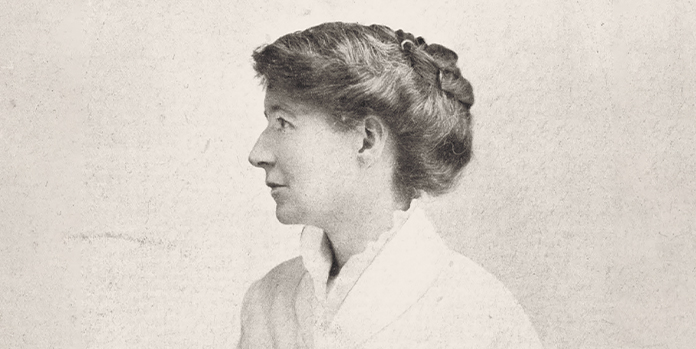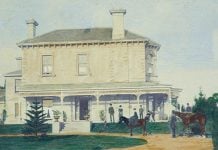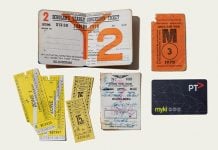Walking past The Old Melburnians War Memorial Hall today, students may not realise that a significant item marking our history is buried beneath the building’s foundation stone. Safe in a metal box is a never-circulated sovereign coin that once belonged to former School Matron Mary McKenzie Finlay (1870 – 1923). The coin was Sister Finlay’s talisman during her WWI service, which saw her establish a field hospital in France, and return to Australia with the Royal Red Cross medal.
Egypt, France, and Australia’s Florence Nightingales
One of twelve children, Sister Finlay came to Melbourne in 1890, aged 20, and began nursing training at the Royal Melbourne Hospital in her mid-20s. Having gained her matron’s certificate of technical fitness in 1907, she took up the role of Matron at Melbourne Grammar the next year, and served until the outbreak of WWI.
Granted leave from her position at the School, Sister Finlay was one of the first women to enlist in the Australian Army Nursing Service, and one of the first six Victorian nurses to be deployed overseas. Describing Sister Finlay and her companions as “Florence Nightingales from Australia,” The Herald quotes one nurse as saying: “We want no privileges. We will go out in the soldierly spirit. What is good enough for the troops is good enough for us.”
Before Sister Finlay left Melbourne, Reginald William Ernest Wilmot (OM 1888), then Honorary Secretary of The Old Melburnians Society, presented her with a newly minted sovereign coin. “Keep that not only as a talisman but to be used in case you ever are really in want of money,” Mr Wilmot told Sister Finlay. “I trust you will bring it back to me when you return.”
Sister Finlay served two years in Egypt and became matron-in-charge of the Ras-el-Tin Convalescent Home in Alexandria before being stationed in Rouen, France. There, she established and led a large military hospital despite “primitive” conditions and shortages of essentials such as water and stoves.
In recognition of her commitment in Rouen, Sister Finlay was awarded the Royal Red Cross (first class), which commemorates exceptional service in military nursing. This medal was first presented to Florence Nightingale herself. “The Royal Red Cross is the highest honour available to an army service nurse,” explained The Herald. “In point of distinction it ranks with the Victoria Cross.”
“[The Rouen hospital] is staffed principally by Victorian nurses,” added The Weekly Times. “Probably the distinction has been conferred upon [Sister Finlay] because of the capable manner in which she has taken charge of affairs at this centre.”
Finlay Place, a street in Gowrie, Canberra, is named in her honour. (All of the suburb’s streets are named after members of the Australian Defence Force who have been awarded decorations.) Fittingly, Finlay Place is currently home to the South Canberra Veterans Shed which supports veterans, First Responders and their families.
Returning home to continue service
Sister Finlay returned to Australia in 1919, when she again took up the role of Matron at Melbourne Grammar. Having kept the sovereign coin secreted in her clothing throughout her WWI service, she initially asked to donate it to the War Memorial Hall building fund, the campaign for which was underway at the time.
Instead, Wilmot elected to donate an equivalent amount in her honour, and such was the significance of her standing in the Melbourne Grammar community, the coin itself remains beneath the Hall’s foundation stone. Buried on Armistice Day, 1927, it rests alongside one of only two official editions of the book War Services of Old Melburnians, 1914-1918, official documents from the day, and a copy of the School’s prospectus.
Sister Finlay became seriously ill with what is believed to be breast cancer in 1922 and died in 1923, age 53. Commemorating her life, The Melburnian wrote:
“The position of Matron in a Public School is what the holder makes it, and Miss Finlay made the fullest use of her opportunities to do good.
In spite of ill-health and her arduous duties, she found time to make real friends of the boys who passed through the House, and to bring the influence of her personality to help the boys through their difficulties. She was a woman who sacrificed herself and her own inclinations to her work, and gave herself entirely to the service of others.
Many an Old Boy will regret the loss of a friend and a wise counsellor.”
Sister Finlay is buried at St Kilda cemetery. Her headstone reads: “A life of service.”



